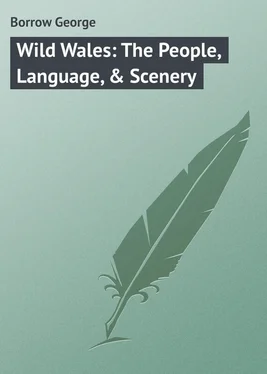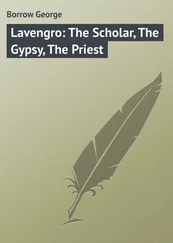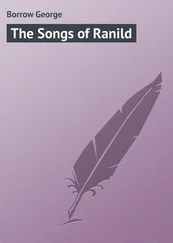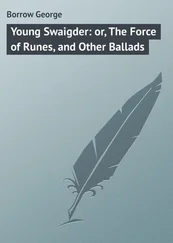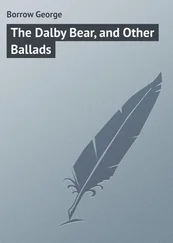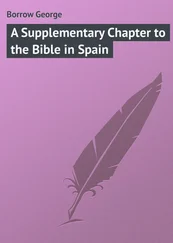George Borrow - Wild Wales - The People, Language, & Scenery
Здесь есть возможность читать онлайн «George Borrow - Wild Wales - The People, Language, & Scenery» — ознакомительный отрывок электронной книги совершенно бесплатно, а после прочтения отрывка купить полную версию. В некоторых случаях можно слушать аудио, скачать через торрент в формате fb2 и присутствует краткое содержание. Жанр: foreign_prose, Путешествия и география, на английском языке. Описание произведения, (предисловие) а так же отзывы посетителей доступны на портале библиотеки ЛибКат.
- Название:Wild Wales: The People, Language, & Scenery
- Автор:
- Жанр:
- Год:неизвестен
- ISBN:нет данных
- Рейтинг книги:5 / 5. Голосов: 1
-
Избранное:Добавить в избранное
- Отзывы:
-
Ваша оценка:
- 100
- 1
- 2
- 3
- 4
- 5
Wild Wales: The People, Language, & Scenery: краткое содержание, описание и аннотация
Предлагаем к чтению аннотацию, описание, краткое содержание или предисловие (зависит от того, что написал сам автор книги «Wild Wales: The People, Language, & Scenery»). Если вы не нашли необходимую информацию о книге — напишите в комментариях, мы постараемся отыскать её.
Wild Wales: The People, Language, & Scenery — читать онлайн ознакомительный отрывок
Ниже представлен текст книги, разбитый по страницам. Система сохранения места последней прочитанной страницы, позволяет с удобством читать онлайн бесплатно книгу «Wild Wales: The People, Language, & Scenery», без необходимости каждый раз заново искать на чём Вы остановились. Поставьте закладку, и сможете в любой момент перейти на страницу, на которой закончили чтение.
Интервал:
Закладка:
“Yes,” said I, “when they speak Welsh.”
“They call it – they call it – why a salmon.”
“Pretty Welsh!” said I. “I thought you did not understand Welsh.”
“Well, what do you call it?” said the woman.
“Eawg,” said I, “that is the word for a salmon in general – but there are words also to show the sex – when you speak of a male salmon you should say cemyw, when of a female hwyfell.”
“I never heard the words before,” said the woman, “nor do I believe them to be Welsh.”
“You say so,” said I, “because you do not understand Welsh.”
“I not understand Welsh!” said she. “I’ll soon show you that I do. Come, you have asked me the word for salmon in Welsh, I will now ask you the word for salmon-trout. Now tell me that, and I will say you know something of the matter.”
“A tinker of my country can tell you that,” said I. “The word for salmon-trout is gleisiad.”
The countenance of the woman fell.
“I see you know something about the matter,” said she; “there are very few hereabouts, though so near to the vale of Clwyd, who know the word for salmon-trout in Welsh. I shouldn’t have known the word myself, but for the song which says:
“‘Glân yw’r gleisiad yn y llyn.’”
“And who wrote that song?” said I.
“I don’t know,” said the woman.
“But I do,” said I; “one Lewis Morris wrote it.”
“Oh,” said she, “I have heard all about Huw Morris.”
“I was not talking of Huw Morris,” said I, “but Lewis Morris, who lived long after Huw Morris. He was a native of Anglesea, but resided for some time in Merionethshire, and whilst there composed a song about the Morwynion bro Meirionydd, or the lasses of County Merion, of a great many stanzas, in one of which the gleisiad is mentioned. Here it is in English:
“‘Full fair the gleisiad in the flood,
Which sparkles ’neath the summer’s sun,
And fair the thrush in green abode
Spreading his wings in sportive fun,
But fairer look if truth be spoke,
The maids of County Merion.’”
The woman was about to reply, but I interrupted her.
“There,” said I, “pray leave us to our breakfast, and the next time you feel inclined to talk nonsense about no Englishman’s understanding Welsh, or knowing anything of Welsh matters, remember that it was an Englishman who told you the Welsh word for salmon, and likewise the name of the Welshman who wrote the song in which the gleisiad is mentioned.”
The ale was very good, and so were the bread and cheese. The ale indeed was so good that I ordered a second jug. Observing a large antique portrait over the mantel-piece I got up to examine it. It was that of a gentleman in a long wig, and underneath it was painted in red letters “Sir Watkin Wynn 1742.” It was doubtless the portrait of the Sir Watkin who in 1745 was committed to the Tower under suspicion of being suspected of holding Jacobite opinions, and favouring the Pretender. The portrait was a very poor daub, but I looked at it long and attentively as a memorial of Wales at a critical and long past time.
When we had dispatched the second jug of ale, and I had paid the reckoning, we departed and soon came to where stood a turnpike house at a junction of two roads, to each of which was a gate.
“Now, sir,” said John Jones, “the way straight forward is the ffordd newydd and the one on our right hand, is the hen ffordd. Which shall we follow, the new or the old?”
“There is a proverb in the Gerniweg,” said I, “which was the language of my forefathers, saying, ‘ne’er leave the old way for the new,’ we will therefore go by the hen ffordd.”
“Very good, sir,” said my guide, “that is the path I always go, for it is the shortest.” So we turned to the right and followed the old road. Perhaps, however, it would have been well had we gone by the new, for the hen ffordd was a very dull and uninteresting road, whereas the ffordd newydd, as I long subsequently found, is one of the grandest passes in Wales. After we had walked a short distance my guide said, “Now, sir, if you will turn a little way to the left hand I will show you a house built in the old style, such a house, sir, as I dare say the original turf tavern was.” Then leading me a little way from the road he showed me, under a hollow bank, a small cottage covered with flags.
“That is a house, sir, built yn yr hen dull in the old fashion, of earth, flags and wattles, and in one night. It was the custom of old when a house was to be built, for the people to assemble, and to build it in one night of common materials, close at hand. The custom is not quite dead. I was at the building of this myself, and a merry building it was. The cwrw da passed quickly about among the builders, I assure you.” We returned to the road, and when we had ascended a hill my companion told me that if I looked to the left I should see the vale of Clwyd.
I looked and perceived an extensive valley pleasantly dotted with trees and farm-houses, and bounded on the west by a range of hills.
“It is a fine valley, sir,” said my guide, “four miles wide and twenty long, and contains the richest land in all Wales. Cheese made in that valley, sir, fetches a penny a pound more than cheese made in any other valley.”
“And who owns it?” said I.
“Various are the people who own it, sir, but Sir Watkin owns the greater part.”
We went on, passed by a village called Craig Vychan, where we saw a number of women washing at a fountain, and by a gentle descent soon reached the vale of Clwyd.
After walking about a mile we left the road and proceeded by a footpath across some meadows. The meadows were green and delightful, and were intersected by a beautiful stream. Trees in abundance were growing about, some of which were oaks. We passed by a little white chapel with a small graveyard before it, which my guide told me belonged to the Baptists, and shortly afterwards reached Ruthyn.
We went to an inn called the Crossed Foxes, where we refreshed ourselves with ale. We then sallied forth to look about, after I had ordered a duck to be got ready for dinner, at three o’clock. Ruthyn stands on a hill above the Clwyd, which in the summer is a mere brook, but in the winter a considerable stream, being then fed with the watery tribute of a hundred hills. About three miles to the north is a range of lofty mountains, dividing the shire of Denbigh from that of Flint, amongst which, almost parallel with the town, and lifting its head high above the rest, is the mighty Moel Vamagh, the mother heap, which I had seen from Chester. Ruthyn is a dull town, but it possessed plenty of interest for me, for as I strolled with my guide about the streets I remembered that I was treading the ground which the wild bands of Glendower had trod, and where the great struggle commenced, which for fourteen years convulsed Wales, and for some time shook England to its centre. After I had satisfied myself with wandering about the town we proceeded to the castle.
The original castle suffered terribly in the civil wars; it was held for wretched Charles, and was nearly demolished by the cannon of Cromwell, which were planted on a hill about half-a-mile distant. The present castle is partly modern and partly ancient. It belongs to a family of the name of W – , who reside in the modern part, and who have the character of being kind, hospitable, and intellectual people. We only visited the ancient part, over which we were shown by a woman, who hearing us speaking Welsh, spoke Welsh herself during the whole time she was showing us about. She showed us dark passages, a gloomy apartment in which Welsh kings and great people had been occasionally confined, that strange memorial of the good old times, a drowning pit, and a large prison room, in the middle of which stood a singular looking column, scrawled with odd characters, which had of yore been used for a whipping-post, another memorial of the good old baronial times, so dear to romance readers and minds of sensibility. Amongst other things which our conductor showed us, was an immense onen or ash; it stood in one of the courts, and measured, as she said, pedwar y haner o ladd yn ei gwmpas, or four yards and a half in girth. As I gazed on the mighty tree I thought of the Ash Yggdrasill mentioned in the Voluspa, or prophecy of Vola, that venerable poem which contains so much relating to the mythology of the ancient Norse.
Читать дальшеИнтервал:
Закладка:
Похожие книги на «Wild Wales: The People, Language, & Scenery»
Представляем Вашему вниманию похожие книги на «Wild Wales: The People, Language, & Scenery» списком для выбора. Мы отобрали схожую по названию и смыслу литературу в надежде предоставить читателям больше вариантов отыскать новые, интересные, ещё непрочитанные произведения.
Обсуждение, отзывы о книге «Wild Wales: The People, Language, & Scenery» и просто собственные мнения читателей. Оставьте ваши комментарии, напишите, что Вы думаете о произведении, его смысле или главных героях. Укажите что конкретно понравилось, а что нет, и почему Вы так считаете.
